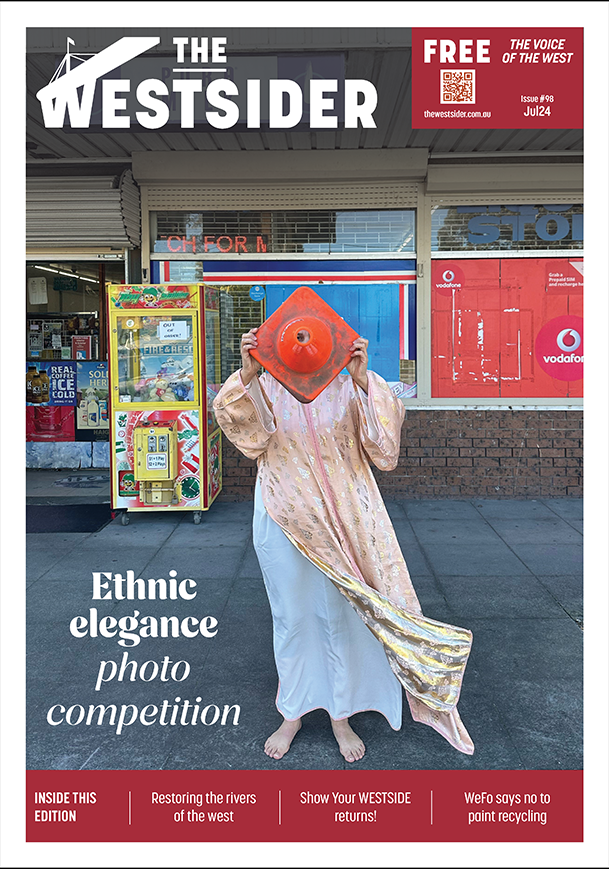By Daniel Mulino
What perfect timing. Just in time for NAIDOC week, the theme of which is ‘For our Elders’, the Senate passed legislation to set up the referendum on enshrining in the Constitution an Indigenous Voice to Parliament.
What better way to show respect for First Nations Elders, who are revered in communities and who have been waiting decades for this recognition.
When asked why I support a Voice to Parliament, I often point to the Uluru Statement from the Heart. In particular, these two sentences:
‘We seek constitutional reforms to empower our people and take a rightful place in our own country. When we have power over our destiny our children will flourish.’
These powerful words capture with eloquent brevity the soul of why Australia needs The Voice.
Back in 1954, the great Australian writer Miles Franklin wrote: ‘Someone to tell it to is one of the fundamental needs of human beings.’
Franklin was reflecting on universal yearnings, universal needs and, I believe, universal rights. We all need to be heard to know that we matter. We all need to know that others are listening.
Enshrining The Voice in the Constitution is a first step in ensuring we listen to our First Nations people.
The Voice will end the silencing First Nation perspectives
This country has had numerous Indigenous advisory groups, all of which have been slowly disbanded. Without constitutional protection, they were all vulnerable to the whims of the government of the day.
The Whitlam government’s 1973 National Aboriginal Consultative Committee was removed by the Fraser government in 1977.
It was replaced by the National Aboriginal Conference, but that body was stripped of funding until it was finally discontinued in 1985.
The Hawke government instituted the Aboriginal and Torres Strait Islander Commission in 1990; it was abolished in 2005 by the Howard government.
The then Aboriginal and Torres Strait Islander Social Justice Commissioner, Dr William Jonas, wrote that this decision sought to ensure that the government would only have to deal with Indigenous peoples when it chose to and only on the issues on which it wished to engage.
Dr Jonas predicted that abolishing the commission would simply silence Indigenous people at the national level. The trend of silencing voices has continued.
Australian governments pass numerous pieces of legislation that directly affect Indigenous Australia — on land rights, to protect Indigenous culture, around the delivery of services and much more.
Indigenous Australians have a fundamental interest in ensuring government hears their views because they and their communities bear the brunt of every government decision.
Non-indigenous Australians have organisations that represent their views to government on all aspects of their lives, including work, business and culture.
The proposal to create an Indigenous Voice to Parliament would strengthen the right of Indigenous Australians to be heard and consulted.
Their views will not be binding on governments. Advice will be provided in much the same way that non-Indigenous organisations proffer advice.
Better outcomes prevail when partnerships are fostered
The Voice is also about a desire to improve outcomes, with evidence showing these are better when we genuinely partner with Aboriginal and Torres Strait Islander communities.
One example is Indigenous ranger programs, which support Indigenous people to combine traditional knowledge with conservation training to protect and manage their land, sea and culture. Rangers reported they felt more pride, self-esteem, self-worth, and better health and wellbeing, with closer connections to family, culture and country.
Ranger groups also reported wider benefits, including safer communities, strengthened language and culture, an ability to find meaningful employment, increased respect for women and more role models for younger people.
Then there are Aboriginal community-controlled health organisations. Low birth weights and infant mortality rates in the Aboriginal and Torres Strait Islander community declined significantly in line with increased investment in primary health care delivered through the ACCHS sector.
Australian governments have over the years passed discriminatory laws – for example, restricting the rights of Indigenous people to vote when all other Australians could vote freely.
Laws were also passed that restricted the access of Indigenous people to social welfare such as the unemployment benefit or the age pension, which were freely available to other Australians.
From the 1960s these laws were gradually repealed. However, a future government could use its constitutional power to pass laws that again restrict Indigenous rights or cause harm.
The referendum to enshrine the Voice to Parliament is not just a gesture of reconciliation, as important as that is. It is also a key protection against a return to a future when the voices of our First Nations people are ignored and silenced.
A long time coming
Some ask ‘Why now?’ The promise of constitutional reform has been a multi-decade process. The Statement from The Heart, the culmination of one of our greatest consultation processes, was shared with this nation six years ago. That remarkable statement deserves to be acted upon now.
The Labor Party went to last year’s election with a commitment to hold a referendum on The Voice in this term of parliament; and the people elected a government committed to holding this referendum.
As the Prime Minister has said, the Statement from the Heart represents our First Nations people generously offering us their hand.
Supporting the referendum is an opportunity for our nation to accept this generous offer and, in so doing, take a long overdue step to a better future.
That’s why I have launched the Fraser for The Voice Campaign. I will do all in my power to make sure that referendum is successful. We cannot waste this opportunity – for the sake of our First Nations friends and for the sake of our nation.
It’s time.
Daniel Mulino is the federal Labor MP for Fraser. If you would like to volunteer for the Fraser for The Voice campaign, please email Daniel.Mulino.MP@aph.gov.au

